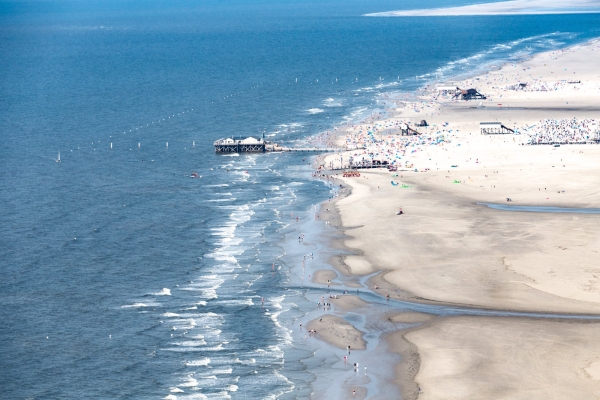Knowledge Networking Portal for Sustainable & Responsible Tourism










 Tourismus-Zentrale Sankt Peter-Ording (GER)
Tourismus-Zentrale Sankt Peter-Ording (GER)
| Contributor | Kim Sohler |
|---|---|
| Country | Deutschland |
| Keywords |
|
| First name | Kim |
| Last name | Sohler |
| Job title | Student |
| Organisation | HNE Eberswalde |
| Release date | 25/11/2019 |
| Landscape type | Coastal |
| Topics |
|
| GSTC Criteria for Destinations |
|
| Marketplace category |
|
| Type |
|
| # | File name | Contributor | Release date | Uploaded by | Upload date | Size | Content type |
|---|
| Good Practice Innovation Sheet | ||||
 |
||||
| Artikel | Beschreibung | |||
| 1. WHO | ||||
| Key people and organisations (initiator, leader, partners) | Constanze Höfighoff, Head of the DMO |
|||
| Lefke Brauer, nationalpark partner coordinator |
||||
| Key Figures | Surface | Inhabitants | Tourism arrivals | Tourism nights |
| 2.825 ha |
4000 | 308.000 | 1.494.000 | |
| 2. WHY | ||||
| Reason for taking the good practice action | The town of Sankt Peter-Ording is located inside of the area of the national park Wattenmeer. The DMO and the national park have always been working close together to develop a sustainable way of tourism. In 2016 the DMO decided to become an official partner of the National Park and has taken a few steps further to create a sustainable and healthy way of tourism in this sensitive environment. |
|||
| Issues and challenge |
-A lot of independent small businesses. Educating sustainabilty is not always easy -Most visitors arrive with their car -The local inhabitants suffer from the tourism development due high living costs and rise in property prices -High depence on an intact ecosystem -Difficulty to find a healty balance between the different interests of the user-groups |
|||
| 3. HOW | ||||
| Methods /steps / tools used (to develop the good practice) | Until 2016, the mayor of the town also managed the DMO. Since 2016 Constanze Höffinghoff is the head of the DMO with a clear vision on sustainablity and creating a good working environment. They also created a plattform for all the businesses in the area to get together and start a dialog. |
|||
| 4. RESULT | ||||
| Specific/measurable results, benefits |
-Tourism strategy and Corporate philosophy with a strong focus on sustainability -intensive dialog and integration of stakeholders -Partner of the National Park Wattenmeer -high variety of sustainable tourism products: eco-friendly mobility, regionality, cultural diveristy and nature experience -sucessfull tourism seasonality measures -High visitor and employee satisfaction -iniatives concerning working conditions -Consideration of impacts on nature and environment, e.g. beach development concept -exemplary ressource management: 100% eco-energy, high efficiency on Energy with own block-type thermal power station, Water and waste reduction -the slit used in the health and welnesscentre is completly regional and can be implemented back into the environment. |
|||
| Recognitions (e.g. awards) |
National Park Partnership |
|||
| 5. REFLECTION | ||||
| Lessons learned | A sustainable development can only be achieved if everyone is participating. |
|||
| Challenges met |
The beach development concept helps to reduce disputes between different user-groups, e.g. sports and conservation actors (see above: specific/measurable results, benefits) |
|||
| Critical success factors |
The size of the DMO with a lot of different properties Accessibility of the destination |
|||
| 6. MORE | ||||
| web-references, documents | https://www.st-peter-ording.de/wissenswertes/spo/business.html | |||














































